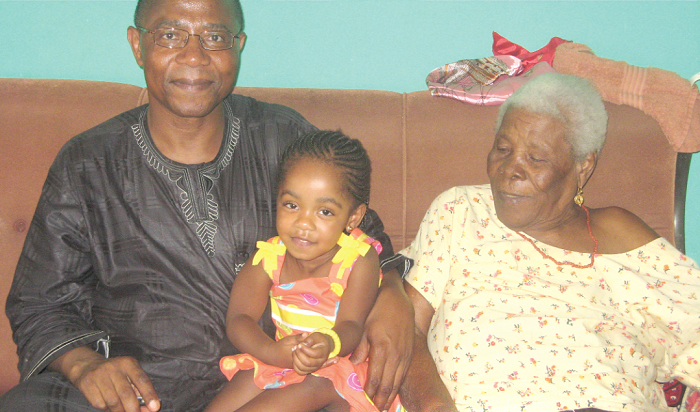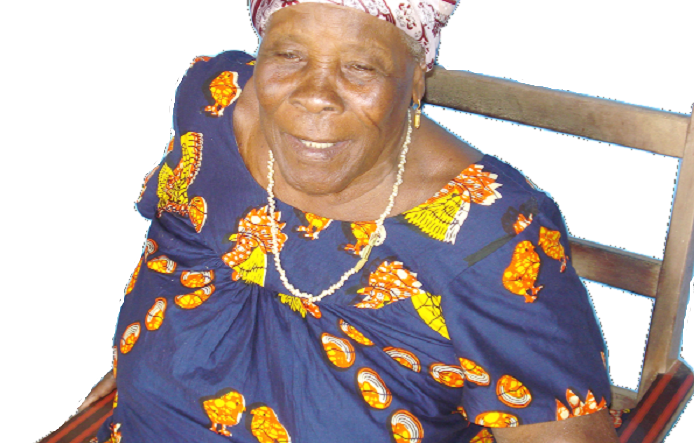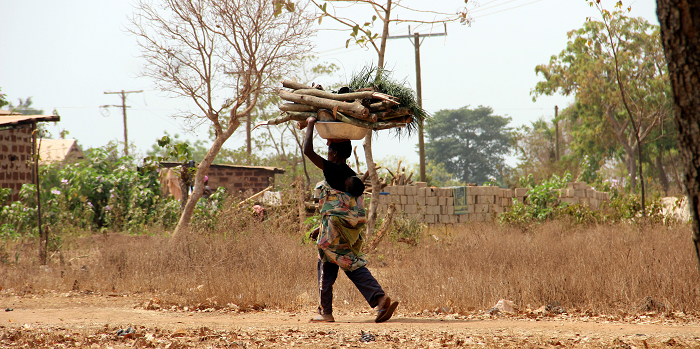
The woman who made me. A son’s tribute
A year ago , August 1, 2015, we laid to rest the woman who “made” me. Torna Hobudzu was 98 – a grand, gratifying, and wonderful age.
Advertisement
In fact, she had started joking (but seriously) that she was ready to move on.In a very calm, brave and resigned sort of way, she would speak once in a while about not having anything more to do on “this side”, and that she was ready to travel to the other side. And so on May 31, 2015 … she quietly slipped away at home, with no fuss. Two months later, hundreds gathered on the school park across the road from our home and bid her farewell, in a true celebration of her life.
As I reflected on my mum and her passing, it occurred to me that she represented or typified many ordinary (and yet extraordinary) women of her generation — women who had no formal education but worked hardest to see their daughters and sons become teachers, lawyers and doctors, as well as generals in the military, accountants in big companies, and top politicians in positions of responsibility. Some of these women produced presidents and leaders of nations.
Many times in our mid-forties and fifties, you would look at these women— our mothers —and look at us, and struggle to connect the woman with the child she made and built. You saw bespectacled, suited gentlemen or high-heeled posh-speaking women of great achievement and turned to the wrinkled earthy-but-dignified woman nearby and then wonder whether this successful adult really came out of the loins of this woman seated on a mat.
Their Fashion
My mother and her peers were women whose best attire consisted of a pair of slippers, a nice piece of cloth and a beautiful scarf or headgear. They were not women who wore the latest high-heel shoes or stilettos. They never straightened their hair or treated it with some extra chemicals. Some tried wigs at some point but the majority would know nothing much about Brazilian hair or stuff like that. They never wore the latest dresses in the fashionable boutiques. They were — or still are — “the women of cloth, scarf and slippers.” In fact, I recall how my mother almost always folded money and tied it into a knot at the corner of her piece of cloth (or wrapper).
My mother and her peers were simple, yet sophisticated.
Vulnerable and yet venerable.
“Uneducated” in the western sense but highly skilled and knowledgeable.
Ordinary and yet extraordinary, in ways their counterparts in this generation cannot comprehend.
Weak and yet strong and resilient in so many ways that defy modern concerns.
Poor and yet prosperous, in ways that material possessions cannot define.
These women hardly complained and just kept on striving, giving, and nurturing.
They were almost invisible and demanded nothing for their years of significant sacrifice for their children.
These women of my mother’s generation kept and maintained secrets that saved homes, families and communities.
They owned very little but were wealthy in the rich relationships and families they nurtured.
They suffered enough pain to make them lose their minds but they rose above every suffering, maintaining their quiet dignity and power through the things they could control.
They lost some children to preventable diseases such as malaria and through the lack of medical facilities or attention but still refused to be held down by what we now know to be post-partum depression.
They simply made lemonade out of the lemons that life, circumstances and society handed them.
They found much joy and great pride in the wellbeing and success of their children and families.
My mother, Torna or mother of triplets, was one such woman.
On this anniversary, I kept wondering how I would have received my mother if she had visited me in boarding school, Keta Secondary School in those days. I recall reading troubling stories of some students whose mothers arrived on their campuses unannounced only for the children to deny their mothers, out of some ignorant reason or excuse. My mum would have arrived in no car, no long dress and no high-heel shoes. She would have arrived on foot, probably in a decent top dress, a pair of decent slippers, and a nice piece of headgear and some beads. That would have been her simple but deeply resilient appearance. I’m sure I would have been glad, even if a little awkward, to welcome her. I was already selling fish for her during the holidays to help her find money for my school fees. She and the many mothers of her generation gave their all to make us what we are today. I also wonder, with gratitude and appreciation, how she managed to have 13 children, including a set of triplets? How did she do all this through natural births, no pain killers, and definitely no epidurals?

This strong woman, who could not read or write, bought me reading and writing abilities and much more. She could not speak English but by selling fish, trading in the market, and farming in corn, cassava, potatoes, groundnuts, and beans, she managed to buy me the education that saw me, at one point in my career, speaking to millions (via the BBC), the English she couldn’t speak. She told me one time in the 90s how she had some strangers coming to look for her at her stall in Akatsi market, just to check if she was the woman a certain BBC presenter had mentioned on Network Africa earlier that morning.
Hard work
Many of these mothers worked very hard on the farm from dawn to dusk. They prepared food items in significantly big quantities to sell in the community and in the market to make some little profit that’s used in maintaining their families. They would set up stall by the roadside with a few items for very little profit. They made houses into real homes, filled with maternal care, compassion and character-building training, even when material comforts were lacking. My mother belonged to that class of stoic, hardworking, dignified but un-educated women who spared nothing to see their children do better and rise higher than them.
My mother became my father. After my father died – when I was eight years old - my mother doubled as a father too, taking care of me and my siblings. In fact, on Father’s Day this year – with all due respect to my dad – I thought about my mum a lot. My dad was a great man in his own right and his local popularity brought us some recognition, sympathy and generosity, even after his death. But losing him so early in my life meant my mother automatically became a father to me and my siblings.
Torna was strong and hard working. She was exceptional and truly blessed. She was kind and full of generosity.
She came from Seva, a largely fishing and trading island community closer to the coast but she married into a farming community some 20 to 30 kilometres inland and quickly learned to farm as if she was originally from this community. In fact, it was my mum who taught and showed m e the basics of farming and agriculture.

Like many women of her generation, she (somehow) frowned upon laziness or idle hands, and would chastise or cajole you if she found you inactive. She practically lived by the saying, “the devil finds work for the idle hands.” Indeed, she was very skillful with her hands. Even on the rare off-day, she weaved the best raffia bags called “kevi” or weaved the best soft brooms called “abayaxa”.
She also produced the most tasty “dzomi” (or palm oil) with “beeku” you ever tasted. (“Beeku” is the tasty dredge that usually remains at the bottom of the refined “dzomi”.) She could make “garri” (or roasted cassava granules) like no other person. In fact, the first quantity of “garri” I took to Keta Secondary School was totally home-made, by her.
Mother of triplets
In our community, having triplets (or twins) was a big deal. Having a child was a blessing enough. Having two means you are truly blessed. But having triplets!? You have to be the special one! It was – and still is - also believed that mothers (and indeed fathers) of twins must have some special healing powers from the Giver of life. So, on many occasions where people suffered sprains or broken/dislocated bones, the clinic was often not the first option. They would carry them to my mum for what I now know as a massage or physiotherapy. She would apply shea-butter cream to the affected part and massage it gently and carefully for several days until the person got well enough to return to playing football or whatever sport brought the injury in the first place. Some of the injured folks who were brought to my mum included students of the local Ohawu Agricultural College – who came from all parts of our nation.
By the time I was born – second after the triplets – our mother had lost her maiden name, Hobudzu (meaning, “Riches dissolved insult,” or “Wealth has wiped away disgrace.”) Everyone simply referred to her by that special title Torna – “Triplets’-Mother” or “Mother of Triplets”. William Shakespeare said, “Some are born great, some achieve greatness, and some have greatness thrust upon them.” My mother had “special-ness” thrust upon her. Eventually, she became Mother-For-All in the community.
She was a woman of kindness and generosity who had no problem with giving and helping others. It was very common for a parent in our community to come to our mother very early on a market day with a chicken to be sold at the Akatsi market. The proceeds usually ended up buying a school uniform or paying a debt or a school fees. Despite her own busy activities in the market, my mother would take the chicken, sell it in the market and return the exact amount to the grateful owner of the chicken. The owner would have saved on the transportation fare to and from the market. She never forgot an act of generosity extended to her and always looked for a way to return a favour. To her it was always more blessed to give than to receive.
She had the most amazing smile that truly warmed hearts. When our mother smiled, you knew that it came from deep within and from somewhere pleasant and spiritual.
Torna was an exceptional woman of grace, dignity and resilience plus generosity and Godliness. On this anniversary of her funeral, we miss her greatly, but take solace in the fact that some of her wonderful traits and qualities are still found in her children and grandchildren. We believe her impact is still felt not just by us – her children and grandchildren – but also by the many lives she touched, through us.



